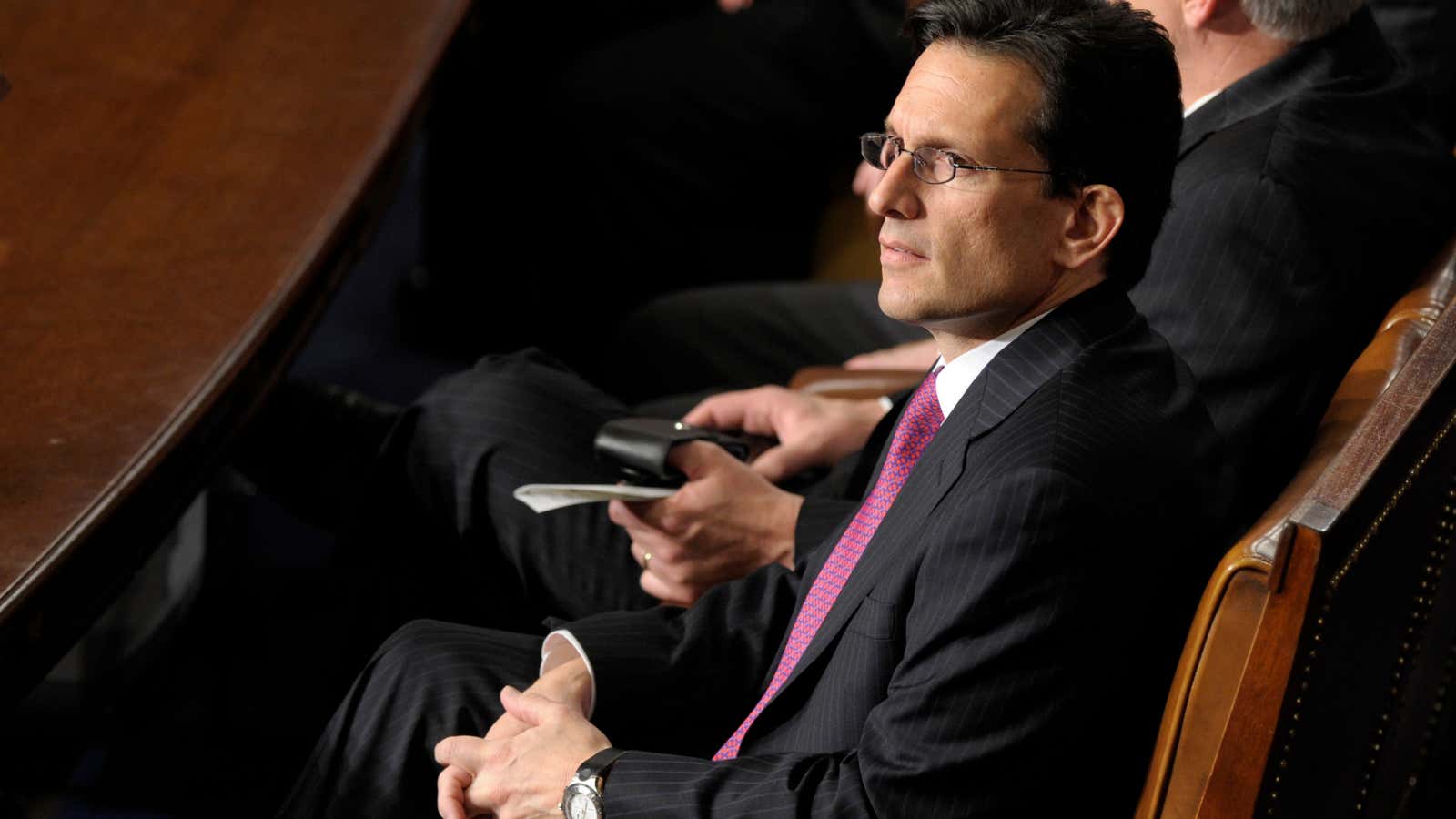Michael Milken, the junk bond king who revolutionized fixed income trading in the 1980s before spending two years in jail for securities fraud, is hosting an economic policy conference this week in Beverly Hills. If anyone can bring together two politicians, it’s a generous billionaire—and that’s why immigration reform advocates might want to temper their hopes.
Milken brought together Democratic Senate Majority Leader Harry Reid and Republican House Majority Leader Eric Cantor for a strained conversation, ostensibly in support of Milken’s efforts to raise money for medical research (and, more subtly, their political campaigns).
Milken brought up the new immigration bill on friendly terms, citing the arguments made by Vivek Wadhwa and other proponents of bringing in new Americans, especially highly-skilled ones, and the need to recognize that Hispanics are the fastest growing American ethnic group.
Reid is all for it, promising that a bipartisan bill will pass the Senate by July 4th, give or a take a week. The comprehensive overhaul would bolster border security, give unauthorized workers a path to citizenship, and allow many new temporary workers, high-skilled and low, into the US.
But Cantor threw cold water on the idea. The alignment of America’s lower legislative chamber favors conservatives who are skeptical of broad efforts to create a path to citizenship for unauthorized immigrants. Cantor suggested that individual pieces of the deal might pass: efforts to give US university-trained foreigners work visas, allow children of unauthorized immigrants to become citizens, even a guest worker program. But no mention of the controversial path to citizenship.
And then he warned that no one knows what the bill would cost.
“As we lead up to another occurrence this summer of heightened focus as we approach the debt ceiling, fiscal matters do count,” Cantor said.
In political-speak, the mention of the debt ceiling is the equivalent of musing aloud about what a shame it would be if someone broke your nice new window while casually brandishing a rock. The latest estimates from the Bipartisan Policy Center show that the US will need to raise the borrowing by September or October, and finishing the bill before then is considered key—or else it will get sucked into debt ceiling madness.
Cantor’s meaning was clear: If House Republicans don’t want a vote on a compromise immigration bill, they can kill the process. But it’s not clear that Democrats will be on-board with passing individual provisions of the bill, even those they favor, without addressing the 10 million unauthorized immigrants currently in the US.
“If we try to do it piece-meal, we’ll never get it done,” Reid warned.
